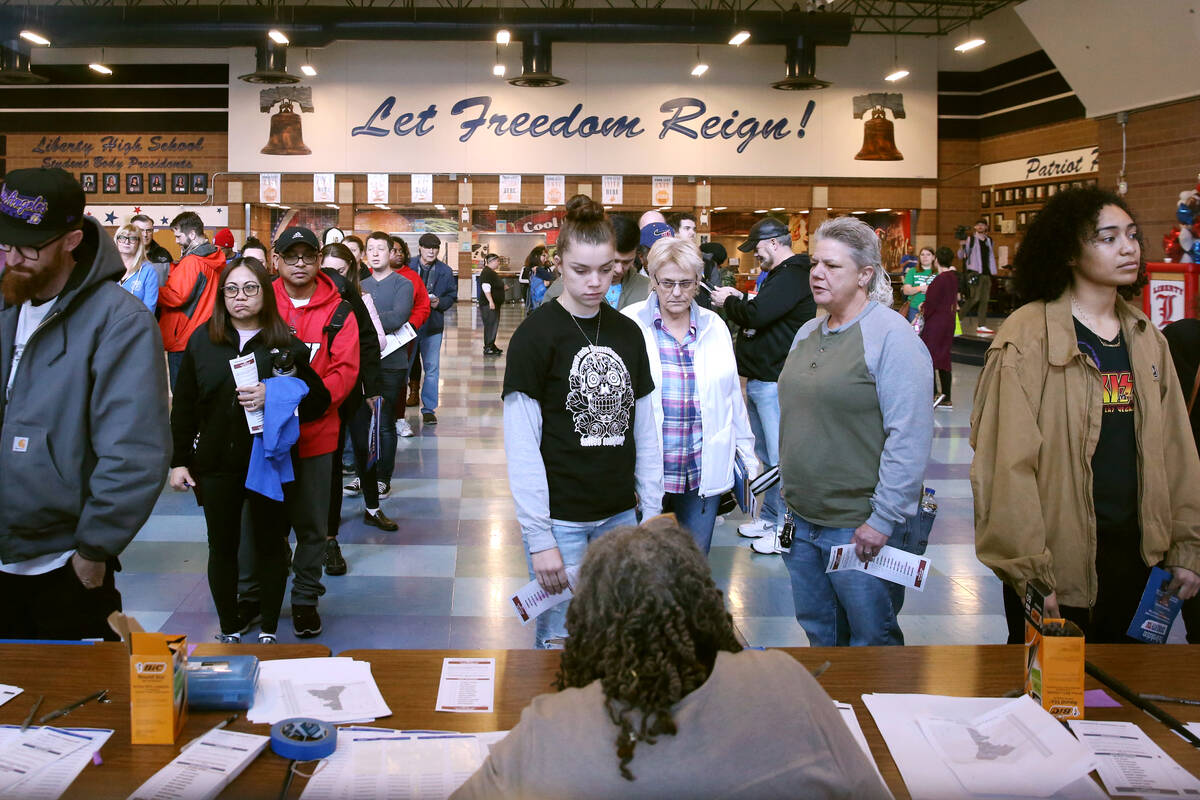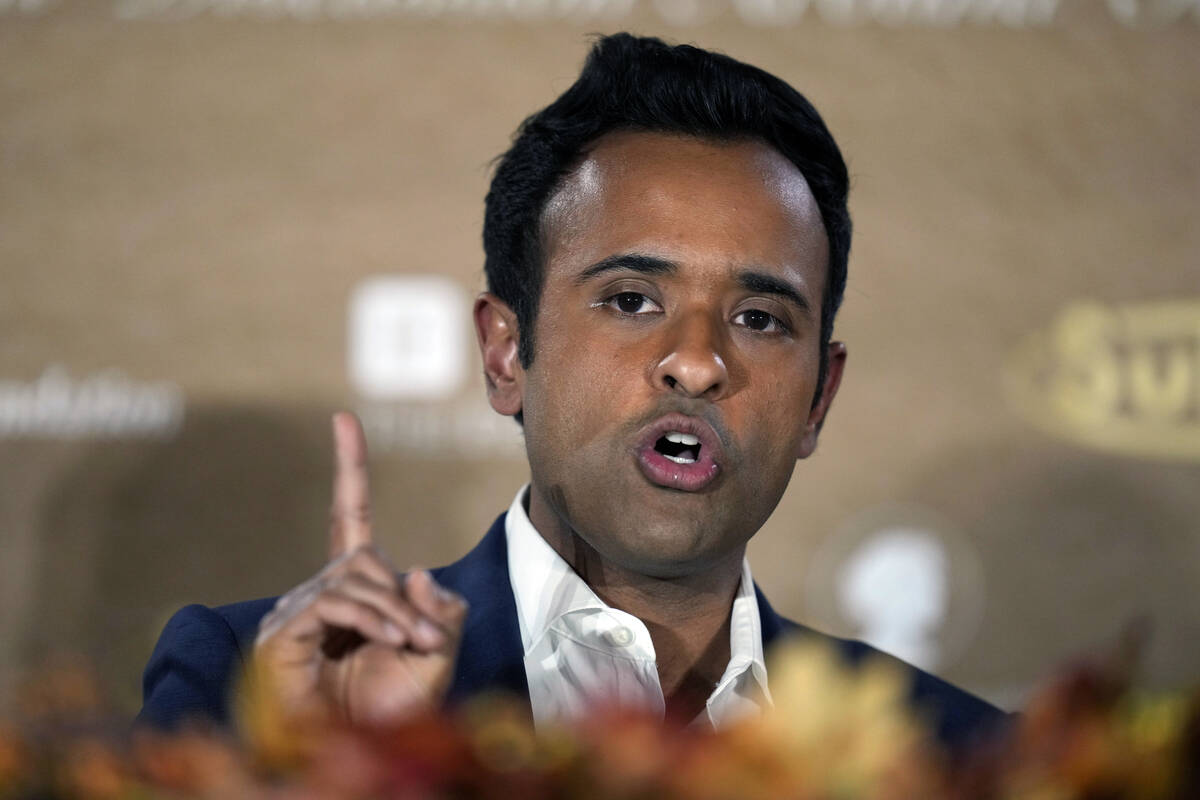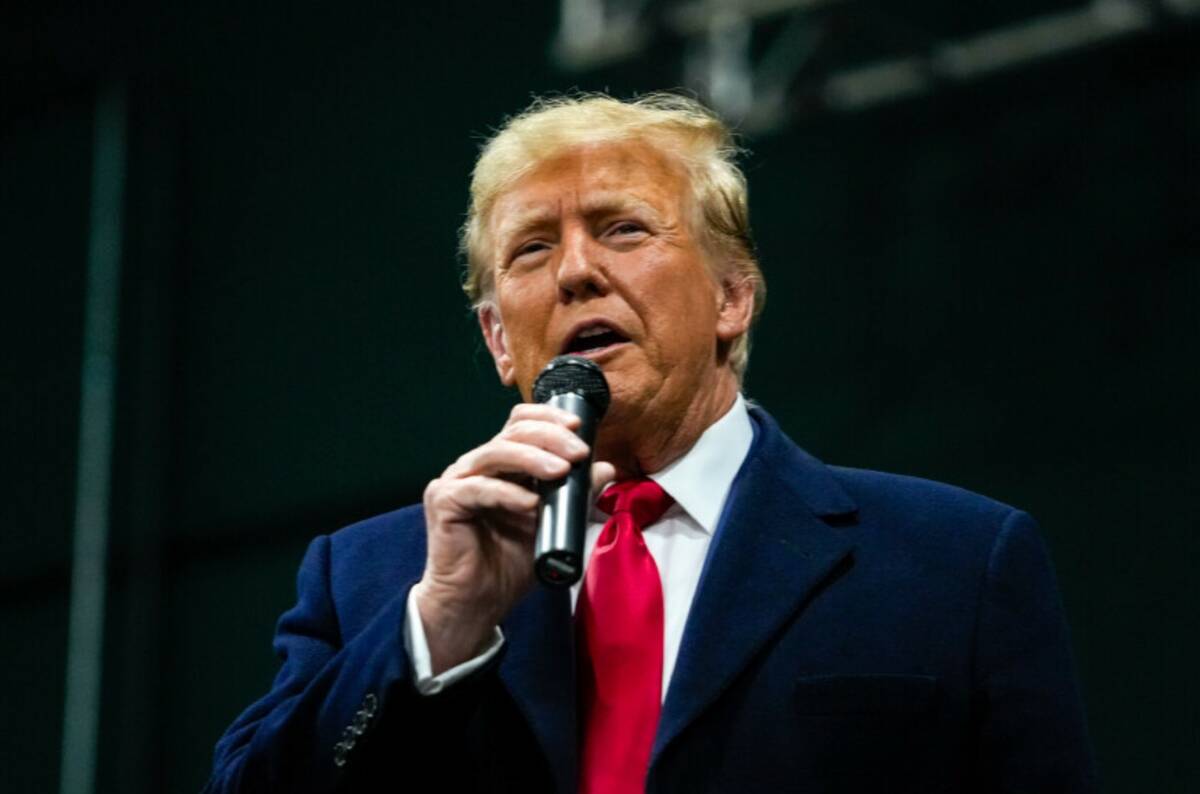Do Iowa caucuses show what’s to come for Nevada?
Iowa’s caucuses saw low voter turnout yet overwhelming Republican support for Donald Trump as president in 2024. It’s what political science experts expect to see in Nevada’s GOP caucuses next month.
Vivek Ramaswamy suspended his presidential bid after receiving fourth place in the Iowa caucuses on Monday, shrinking the pool of candidates who will continue on to the next state’s nominating process.
His departure leaves only three presidential candidates for Nevada Republicans to choose from in the Nevada Republican Party’s caucuses on Feb. 8: former President Donald Trump, Florida Gov. Ron DeSantis and Texas business executive Ryan Binkley.
That number could dwindle, however, after New Hampshire Republicans select their presidential nominee in their Jan. 23 primary.
Nikki Haley, who came in third in Iowa’s caucuses behind DeSantis, will participate in Nevada’s presidential preference primary Feb. 6, although no delegates will be awarded from the state-mandated election.
Trump expected to win Silver State caucuses
Iowa’s caucuses did not bring any real surprises, said Dan Lee, associate professor of political science at UNLV, and he doesn’t expect any surprises in Nevada’s.
Trump is the clear frontrunner, and it is likely he will run away with the results in the Silver State’s caucuses, Lee said.
Back in 2016, even as a political newcomer, Trump performed well in Nevada’s caucuses, receiving 46 percent of the votes, Lee said.
This time Trump is coming back as a former president, and Lee expects him to do even better. He also thinks caucusgoers more heavily favor Trump, as the more grassroots, enthusiastic supporters are the types of voters more likely to show up to a caucus versus a primary.
“Everything’s pointing to him doing really well here,” Lee said.
Chuck Muth, a conservative commentator who publishes a Nevada-focused newsletter, told the Las Vegas Review-Journal that he anticipated a low turnout and a handsome win for Trump in the Silver State’s caucuses. Following Iowa’s results, he expects an even lower turnout and an even bigger win for Trump.
“It’s almost inevitable that Trump will be the nominee,” Muth said.
‘Not a recipe for high turnout’
The caucuses in Iowa brought out 110,000 Republican voters, about 14 percent of the state’s approximately 752,000 registered Republicans, in part because of Iowa’s frigid temperatures with wind chills as low as minus 40 degrees. The voter turnout pales in comparison to the 2016 Iowa caucuses in which more than 186,000 Republicans participated.
Nevada’s caucuses, scheduled to start at 5 p.m., could see a similarly low turnout, political science experts predict.
While the weather will be less of an issue in Las Vegas — although sometimes the Silver State’s strong winds can deter voters — holding the caucuses on a Thursday evening before the Super Bowl, two days after the state primary is ‘not a recipe for high turnout,’ said David Damore, a political science professor at UNLV, in an email.
If DeSantis drops out after the New Hampshire primary, that would leave even fewer candidates for voters to turn out for, Damore said.
Voter confusion
Another contributor to the expected low turnout is the confusion surrounding the caucuses and the state-run primary, Muth said. People have been emailing Muth unsure about which one to participate in and if they can vote in both, and people are angry, he said.
“It’s a disaster from a PR standpoint for the party,” Muth said.
The party’s determination to stick with caucuses also could bode poorly for Republican turnout in the other 2024 state-run elections, Muth said. The Nevada Republican Party is promoting the caucuses by saying the primary cannot be trusted, which could affect turnout in the June primary and the November general elections, he said.
Michael McDonald, chairman of the Nevada Republican Party, hopes for a high turnout for the caucuses.
The party has sent out mailers and text alerts to registered Republicans in the state and conducted numerous trainings, and another round of text messages will go out soon, McDonald said. The party also has responded to emails and calls from people confused about why Trump and DeSantis are not on the primary ballot.
“It’s been educational for a lot of people,” he said. “We have a lot of first-time caucusgoers excited to do it.”
Primary vs. caucus turnout?
Lee is more interested in what the voter turnout will be in the Republican presidential primary. Typically a primary election has a much higher turnout than caucuses, he said. Haley could receive similar numbers of votes in the primary — though she will receive no delegates — as Trump receives in the caucuses, Lee said. Haley could use the results as part of her strategy to build momentum.
It’s also possible that Haley could lose to “none of these candidates” in the primary, Muth said. That happened before in the 2014 Democratic primary for the governor’s race.
Contact Jessica Hill at jehill@reviewjournal.com. Follow @jess_hillyeah on X.




















